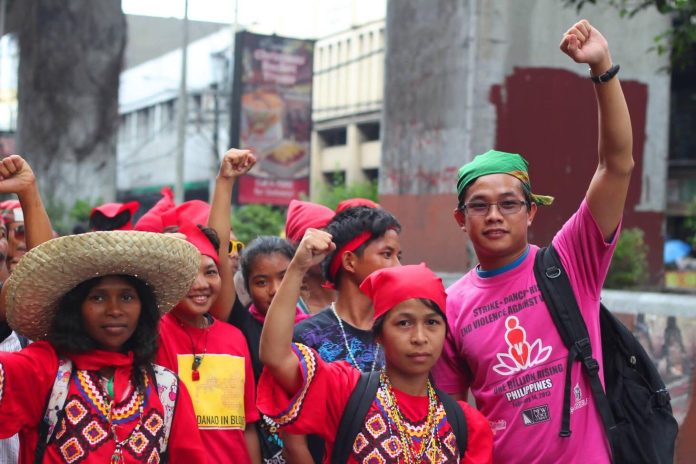An archbishop in the Philippines has challenged members of the clergy in the country to speak out against the “exploitation of the poor” by politicians, as the country enters into an election season.
Running in May elections to be the country’s next leader is Ferdinand Marcos Jr., son of the country’s former dictator, Ferdinand Marcos, with the daughter of current president, Rodrigo Duterte, as vice president.
In a homily, Archbishop Socrates Villegas of the Archdiocese of Lingayen-Dagupan in the northern part of the country challenged Catholic clergy to take a stand against “opportunism and family dynasties.”
“If those whom God has chosen and sent to teach will choose silence, how will the people know God in their lives?” said Archbishop Villegas. He said that when Christianity is removed from politics, “the wicked rule, the egoists reign, the poor suffer, and sin prevails.”
But speaking out against “sinful politics” has become dangerous for some members of the clergy in the country. Several outspoken priests and religious who criticized the spate of drug-related killings have been killed or threatened.
Redemptorist priest Father Ronald Balase is a priest for only eight months, but he has been in the forefront of protest since he was a seminarian.
The young priest has become a target of threats and surveillance for speaking out against human rights abuses and attacks on indigenous communities. He recently spoke with Aid to the Church in Need (ACN):
“There was a time when I received an anonymous message, telling me that even if I change my name on Facebook they would know and that my days are already numbered.
“My current mission is faith formation of basic ecclesial communities where we incorporate the discussion of social realities.
“It is important for priests, as teachers, to understand the role of the Church in public life. We are considered teachers because we teach people about faith. That is why we deliver the homily, to convey and to explain the Good News.
“Often priests are only viewed as those who dispense the sacraments, those who perform baptisms, weddings, those who bless cars and houses.
“But if we are going to look closer at the sacraments, it is about dispensing the goodness of the Lord.
“Sacraments are not just actions—they are signs of the Kingdom of God. If people want us to dispense these things, they should understand that priests are out to remind us of the kingship of God.
“The kingdom of God is life that is plentiful where people do not encounter social sins and injustices. That is why preaching about social injustices is part of the role of a priest.
“Those in the government, those in power, see priests who speak out about social issues as ‘enemies.’
“Those in power need to cover up the wrongs that they have been doing. That’s why they want to destroy people, priests, who are very vocal critics of the government.
“I’m newly ordained, but I think this is the time that I am being challenged by history. I will stand in support of a particular candidate. The ‘education campaign’ of the Church that urges people to ‘vote wisely’ during elections seems not effective anymore.
“We have the criteria. It’s good, it is very good. But why is it that many voters, Catholics, don’t follow these criteria when they cast their votes?
“Let us go beyond ‘being neutral’ and ‘being non-partisan.’ It’s not the time for us to take the neutral ground or be non-partisan because it is clear that what is happening in our country is not a fight between one camp of politicians against another. It is clear that the Philippine elections, the Philippine situation, is a fight between good and evil.
“It is the time for the Church to take a stand against lies, injustices, and corruption. These are the evil that have been devouring the country.
“If there is one candidate who shows some light, some hope for the country, I will support this person who meets the criteria set by the Church.
“I am afraid about my being vocal about social issues, about the threats that I received, but if priests are to dispense the sacraments, there will be times that we also become the sacraments.
“A believer should embrace the fact that a priest is not only a dispenser of sacraments, but is also himself a sacrament who is also offered on the altar.
“If being a sacrament means death or hardships, it is how Christ saved all of us. That is something that I would love to happen to somebody like me or to others who serve the Church. If it’s the consequence of our stand, then it would be a great glory given to God as a sign of salvation for others.”
This article is reprinted with permission from the Aid to the Church in Need in the United States









